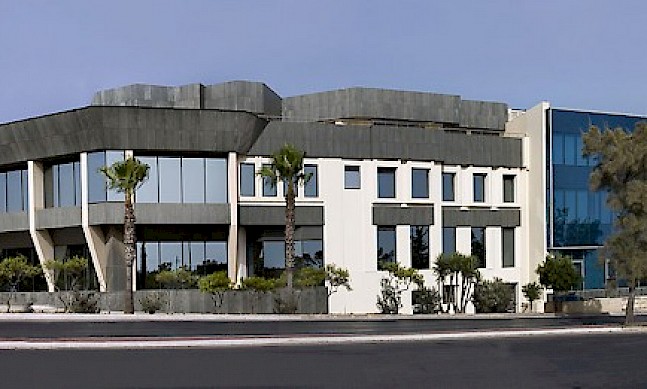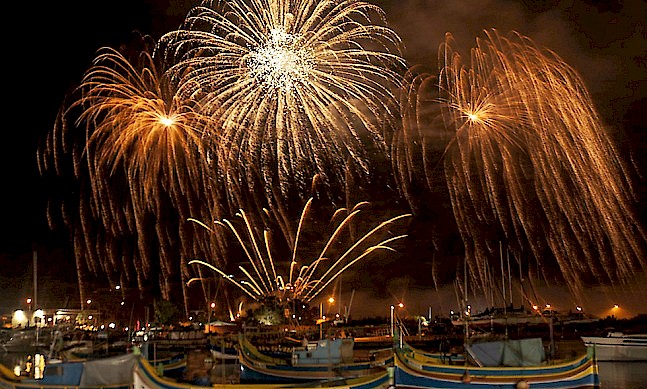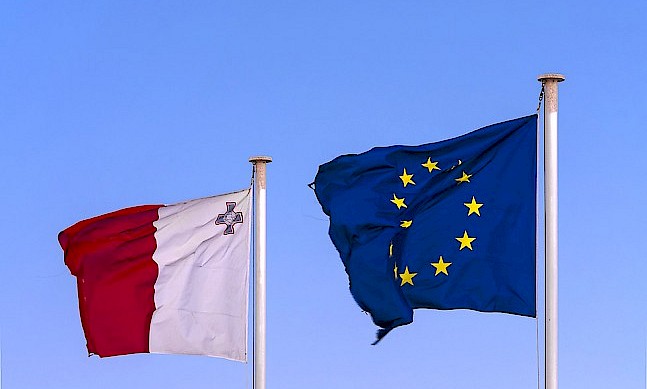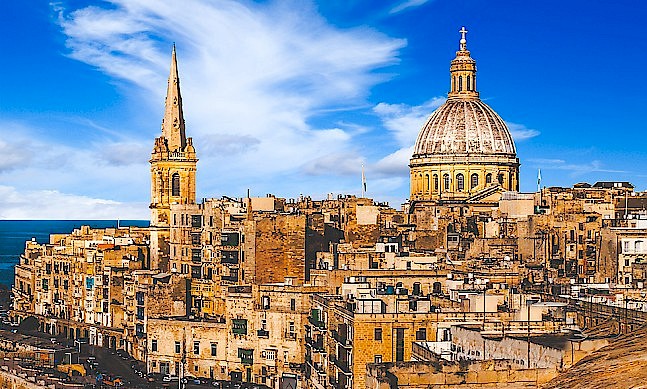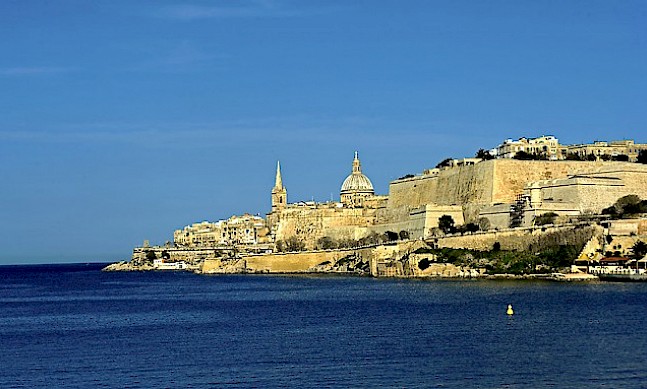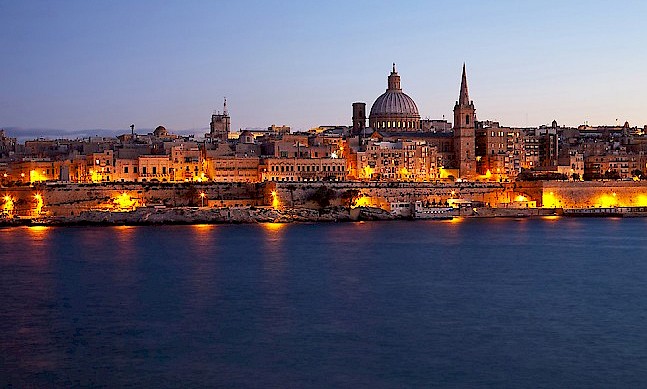Fenech & Fenech Advocates is one of Malta’s oldest law firms, and one of the largest. Since its beginnings in 1891, the firm has developed a vast number of practice areas, including four separate and distinct departments dedicated to shipping – marine litigation, ship registration, ship finance, and yachting. In addition, Fenech & Fenech has an impressive international practice dealing with all corporate and commercial issues, mergers and acquisitions, financial services, banking, trusts and foundations. In recent years , the firm has set up practices in aviation law, ICT, and i-gaming. Dr Ann Fenech, the firm’s managing partner, spoke to The Report Company about Malta as a jurisdiction of choice for foreign investors.
The Report Company: How has the firm evolved over the years?
Ann Fenech: One of the main assets of Fenech & Fenech has always been the realisation of needing to keep up with the times; developing practice areas and departments in-line with what the government of the day was indicating as an area of growth. We have always had a very proactive approach. Back in the 1960s, when Malta had just become independent, it was trying to attract foreign residents to come and live in the country. The firm was particularly active in servicing expatriates who would come to Malta and make their home here.
The main development of the firm took a different direction the late 1980s, when the government of the day decided to develop Malta as a service industry base. Malta’s particular strength for the service industry was always and remains our knowledge of spoken English. This is what helped us in the 1980s to catapult Malta into the financial services industry, into the banking industy , and into the maritime industry.
Moving forward, in the 1980s and 1990s we saw tremendous growth in the maritime sector. Although we offer legal services in a whole cross-section of areas, the maritime sector remains exceptionally important for us. It is in a way our backbone, and this is recognised by all the various reviews that we get in the major directories. Today we enjoy a very good rankings in both Legal 500 and Chambers.
TRC: How is Fenech & Fenech perceived internationally?
AF: Today, our international transactions department is dealing with numerous transactions. We have professionals who really know what they’re doing, and we give clients a good service, and good value for money. What I have certainly tried to do over the last eight years, since I’ve been managing partner, is to give the people in my organisation a sense of ownership of all the projects which they embark on.
Furthermore, I am now on the executive council of the Comité Maritime International (CMI), the first time a Maltese person has held this role. This is the body which drafts international maritime conventions. It has observer status in the International Maritime Organisation, and drafted the vast majority of the major international maritime conventions. There are 13 members on the council and I am one of them. We have a very large conference every year, and one of the things that we are trying to do at the international level is to try to encourage more firms and jurisdictions to send young people, because the confidence a young person can get out of an experience like that is incredible. When you give people confidence, they feel happier in themselves, they perform better, and back to the firm, when you have people on an individual level who feel confident in themselves, they give a good impression of the firm.
“We have professionals who really know what they’re doing, and we give clients a good service, and good value for money.”Post This
I want to empower young people to go out there and promote themselves, because as they promote themselves, they’re going to promote the firm. I think that is one of the reasons why our young people develop very quickly at the firm. If they are good, they do not remain junior associates for very long. You need the balance of the experienced lawyer, like myself, because after 30 years in this business I have learnt a thing or two. But you also need the energy and the ideas of the younger generation.
TRC: How would you appraise the maritime sector in Malta?
AF: I’ve been practising for 30 years exclusively in the maritime sector, and honestly every day I walk through the door I learn something new. Malta is a jurisdiction which is ideally placed to service the international maritime community in all its aspects. First of all, Malta has the benefit of its geographical location. It is in the middle of the Mediterranean, equidistant from the Straits of Gibraltar and Suez, North Africa and the southern tip of Italy. Even from a purely navigational perspective, we straddle one of the most important waterways in the world. That in itself brings with it opportunities for us to service vessels from a navigational perspective. That means that Malta is an ideal location for supplies and provisioning, is an ideal location for crew changes, and is an ideal location for bunkering.
Then of course there is the other part of the maritime business, the repair. We are blessed with the deepest natural harbours in the Mediterranean. The Exxon Valdez was repaired in Malta. We have got docks that can take vessels up to 300 metres.
There is another aspect to f the maritime industry where you have a number of suppliers who provide services to the oil fields in North Africa and the Mediterranean, and that brings with it a tremendous amount of activity, where they use Malta as their base. We also have a vast number of service providers, like tug operators, who operate from Malta to offer their services. Malta is ideally placed for all of these offshore activities.
Then there is the softer side of the maritime industry, yachting. Yachting in Malta has flourished beyond any form of expectation. We have a number of marinas which are very good and offer the yacht owner the perfect location to explore the whole of the Mediterranean. Furthermore we have a number of important structures which make Malta an attractive jurisdiction for the registration and purchase of yachts. Malta offers solutions for the payment of VAT based on the amount of time which a yacht spends in EU territorial waters.
“The edge we have on other law firms is the fact that many years ago, we recognise how important it was to specialise, and to this day as an example, we are still the only law firm on the island which has four separate departments giving separate maritime services to the international maritime community.”Post This
Then there is the oil storage industry, because this is very closely associated with the maritime industry. In Malta, there are two oil storage facilities, and that brings with it a certain amount of maritime activity. Today we are seeing the largest container ships going in and out of Malta Freeport.
To complete the picture, there is the academic side. Malta is home to the International Maritime Law Institute, so it’s not simply a matter of the technicalities, or crewing, or logistics; there is also the academic side to the business.
TRC: What are the competitive edges of Fenech & Fenech as a legal services provider in the maritime sector?
AF: I have a tremendous amount of respect for my peers. We all provide very high levels of service, however I believe that the edge we have on the other law firms is the fact that many years ago, we recognised how important it was to specialise, and to this day we are still the only law firm on the island which has four separate departments giving separate maritime services to the international maritime community: the marine litigation department, the ship registration department, the ship finance department, and the yachting department. I feel that when a shipping client needs advice on a particular issue, because we are so specialised, we can really home in on what they require. We know the law; we were very heavily involved in writing a lot of the marine laws.
TRC: What future do you see for Malta in the aviation sector?
AF: I’m very excited about it. Aviation, especially the private jet sector, is associated with the ultra-high-net-worth individual. I believe that Malta is ready to cater for that market, and we are catering for that market. Malta was the second state to become a signatory to the Cape Town Convention, which provides a single international register for the registration of financiers’ lending. Mortgagees who would lend for the purposes of financing aircraft, would register their interest in this international register. The advantage is that if something goes wrong and the country happens to be a member signatory state to that convention, then those mortgagees’ rights can be enforced in that country. The fact that Malta is a signatory means that financiers feel happy about lending money to aircraft which are going to be registered in Malta.
TRC: Besides maritime and aviation, what are the other areas that represent growth potential for your firm?
AF: We cover everything. A very important area of practice for us is our international practice department. This is a department which caters for the requirements of international investors who want to invest in projects in Malta. Those projects can either actually arise in Malta, i.e. international investors wanting to invest in ongoing projects already available in Malta, or projects where investors would actually want to set up their businesses in Malta. That is a huge growth area. We also see growth in joint ventures. International companies are increasingly recognising the value of doing business in Malta.
“Malta was probably one of the very few countries in the world that went through this most recent recession of 2008 without it having the slightest effect on the economy of our country.”Post This
TRC: What makes Malta so attractive for these companies?
AF: It’s the strategic position and also very importantly the central European time zone. There is also the solidity and the stability of our laws; we have a legal system which combines the the civil law system whilst incorporating a huge amount of Anglo-Saxon legislation. In the business world, English law counts for a lot. Everyone speaks English, we have a very high level of education, so the local human resources are very good, and when these companies come to Malta to develop their businesses, there is a very highly qualified local workforce. In fact, possibly the problem now is that we do not have enough to cope with the demand. But thankfully, we have a very good university, which keeps on catering for new areas, whether it’s human resources, management, information technology etc.
TRC: What is your firm’s strategy towards attracting clients from abroad?
AF: International business has always been one of Malta’s main focuses. At the end of the day, we have no raw materials. We are a rock in the middle of the Mediterranean, surrounded by seawater and sunshine. Therefore it is vital for us to attract overseas clients by developing our service industries. That said we must not underestimate the local clientele; there is a very substantial local clientele which is doing exceptionally well, which we service as well. However, when you are talking about enlarging and growing your product, locally you can only take it so far. Malta’s success depends terribly and very heavily on coming up with products which are going to be of interest to the larger community, which is one of the reasons why Malta had to become a member of the European Union. Membership of the European Union has opened this incredible market, and Malta is now very attractive to foreign investors coming from America, Asia, and the Middle East, seeking a foothold in the EU.
TRC: What would your message be to the world about Malta?
AF: Malta is a jurisdiction which has the benefit of hundreds of years of one of the most robust legal systems in the world, which gives foreigners and foreign investors a huge degree of comfort. We are a jurisdiction which has been proven through the hardest, most strenuous, testing periods. Malta was probably one of the very few countries in the world that went through this most recent recession without it having the slightest effect on the economy of our country. We are open for business, the Maltese are very hard-working, we give very good value for money, and as full members of the European Union, we have got a lot to offer, particularly to those countries coming from outside the Union who want to have a base in Europe.




